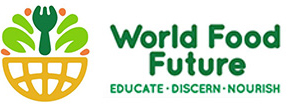
Following from WFF2019’s individualistic theme of “Re-Think Your Food “, WFF 2021’s theme elevates this discussion to the country/global level. For isn’t Singapore the ultimate sand box for understanding and observing policy impact?
“Re-Thinking the Foodie City for 2030” will address the very heart of Singapore’s eating-out culture as a thriving, cosmopolitan, multi-cultural global city which is constantly re-inventing itself to stay relevant and at the forefront of the food world. Learnings from this conference have relevance for all global cities which face rising obesity and health issues set against fervently embedded cultural eating norms.
In Singapore, we take our food seriously.
Happening at the same time in 2020 – Singapore has submitted its bid to UNESCO to recognize our unique hawker culture (results known by end of 2020). Also, new government policies are being put in place to safeguard the country’s health against diabetes (War against Diabetes) – such as a total ban of packaged drinks with high sugar content and drinks with medium to high sugar content to be labelled clearly as well. The government through the Health Promotion Board – has advised all sections of the population to eat healthier food eg. brown rice instead of white rice – or to heed healthier choice labels.
But are these government efforts at odds? Preserving our heritage and also trying to make food healthier – is that possible? How do the different food industry players see themselves evolving to stay relevant to a more demanding customer base? Can we really have a “Delicious Food Disruption” that is healthy, tasty and affordable/accessible? Is that the holy food grail?
And where does food and agri-tech come into play in this tricky equation? Singapore is opening up land, giving out grants and increasing education opportunities for those who want to join the sector. The ultimate goal is for Singapore to be a leading urban agriculture and aquaculture technology hub with a food production model that can be exported to the region.
It all spells a very exciting next decade for Singapore as it aims to retain its crown as one of the world’s foremost foodie cities – sitting at the crossroads of Asian cultures and being open to cultures from all around the world.
Come join us at WFF 2021 to see what’s in store for our foodie city in the next decade – and how we can mesh seemingly opposing food objectives.






















